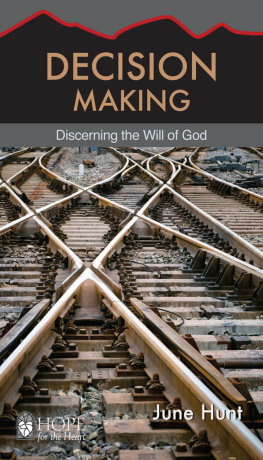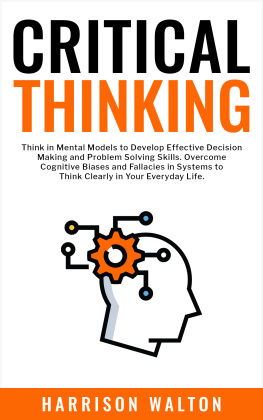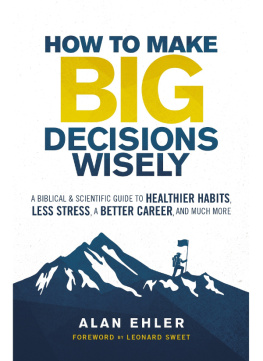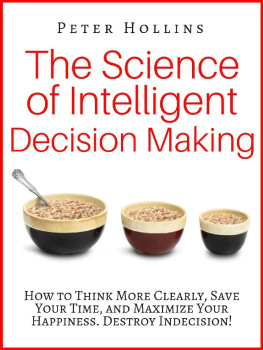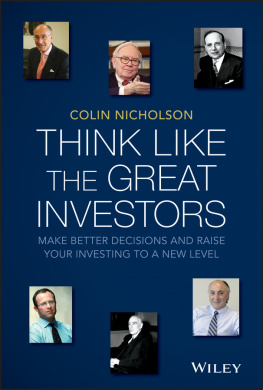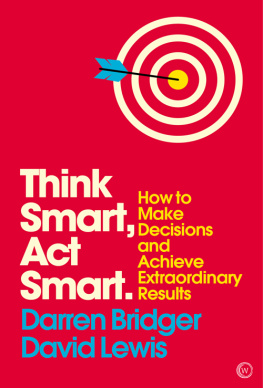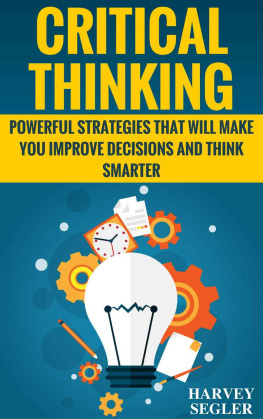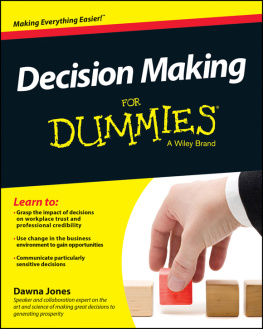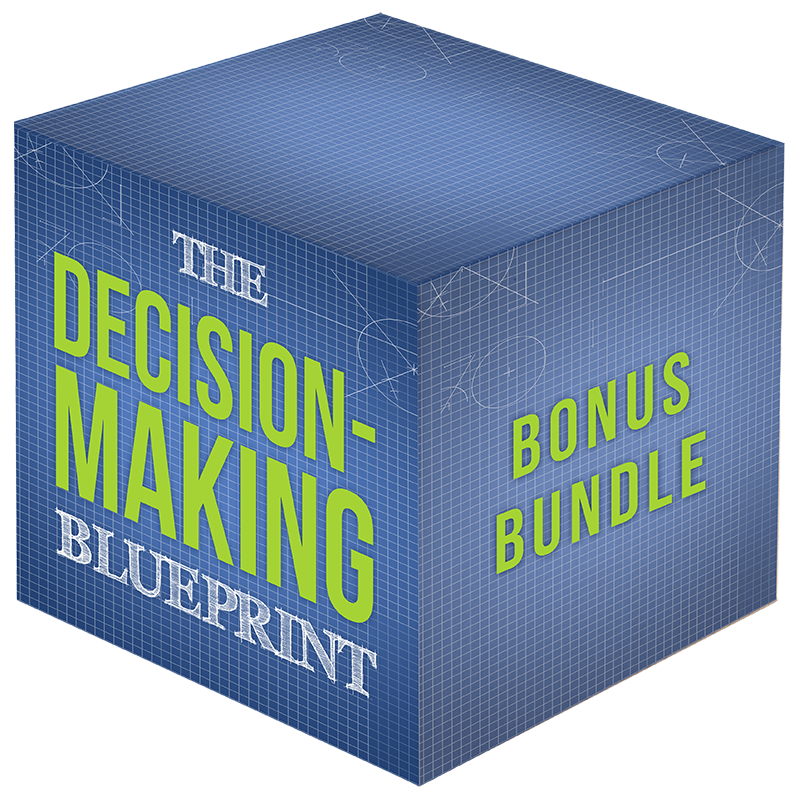All rights reserved. No part of this book may be reproduced in any form without permission in writing from the author. Reviewers may quote brief passages in reviews.
Please note that this book is for entertainment purposes only. The views expressed are those of the author alone and should not be taken as expert instruction or commands. The reader is responsible for his or her actions.
Well be covering a lot of powerful concepts in this book. To make it as easy as possible for you to internalize them and use them in your decision-making, this companion resource contains:
You cannot change your destination overnight, but you can change direction overnight.
The Secrets to Great Decision-Making
Throughout history, standard economic theory was dominated by the model of homo economicus: the economic man. According to that model, humans are self-interested, intelligent, and analytical beings who can control their feelings and impulses. The economic man constantly evaluates all the facts, weighs the costs and benefits, and makes rational decisions to maximize personal well-being.
This view of humans as cold and rational calculators provides a convenient foundation for economic theories.
The only problem? No such person exists.
The Fall of Homo Economicus
It turns out that people often make decisions that dont deliver the best outcomes. Sometimes, we even make choices that we know will hurt our future prospects.
The first researchers to study these peculiar tendencies extensively were psychologists Daniel Kahneman and Amos Tversky. In the early 1970s, they started investigating the psychology involved in decision-making and running experiments to test their hypotheses.
Over the coming years, they compiled a long list of well-documented irrational behaviors, and in 1979 they published their key paper, Prospect Theory: An Analysis of Decision Under Risk.
Their findings caused a lot of controversy, especially among economists looking to protect their worldview. But Kahneman and Tversky stood their ground, and their work eventually marked the start for a new field of study.
The Rise of Behavioral Economics
Behavioral economics is a subfield of economics that studies how psychological, social, and emotional factors influence decision-making. The fundamental principle of this discipline is that people make systematic errors in their thinking.
Behavioral economists have found that the vast majority of our choices arent the result of careful calculations. Instead, we rely heavily on mental shortcuts like rules of thumb, intuition, and common sense to form judgments, solve problems, and make decisions.
These shortcuts can work well in a lot of situations but, at times, they also result in cognitive biases and logical fallacies, thinking errors that distort our reasoning and derail our judgment.
An Ancient Brain in a Modern World
So, why do we make systematic errors in our thinking? Why do we use mental shortcuts instead of carefully calculating our decisions? What makes us susceptible to biases and fallacies?
The answers to those questions lie in our evolutionary past. Our brains have evolved for millions of years, not to maximize our well-being, but to keep us alive.
For most of our history, we lived in an environment that was wildly different from modern society. And that explains why we reason the way we do.
Mental shortcuts provided an efficient means for us to make quick decisions with limited knowledge in a complex world.
A lot of decisions that seem irrational today served us well in the environment we evolved in. To illustrate that, lets have a look at an example.
Loss Aversion
People have a tendency to prefer avoiding losses to acquiring equivalent gains. In other words, we feel better not losing $10 than we do finding $10.
Some research suggests that losses are twice as powerful, psychologically, as gains. And from an evolutionary perspective, thats a useful mechanism.
For most of human history, reductions in resources could lead to death. In that scenario, it makes sense to place a higher value on preventing losses than obtaining gains.
In modern-day life, however, losses rarely have the same dire consequences. And since thats the case, loss aversion no longer makes rational sense.
In the past, loss aversion helped our ancestors protect their scarce resources and stay alive. But in the present, the same bias often leads to poor decisions. When investing, for example, most people keep losing stocks and sell winning stocks even though, rationally, they should do the exact opposite.
Bad Decisions Everywhere
Loss aversion is just one example of how the brain makes systematic errors. There are many other biases and fallacies that diminish our ability to make sound judgments and reason logically.
We are fundamentally wired for mistakes and, as a result, we make a lot of poor decisions. The evidence is everywhere.
Career choices, for instance, are often regretted or abandoned. According to a Gallup report, a majority of Americans would change at least one education decision, including their choice of college, their major, or their degree, if they could do it all over again.
When it comes to our health, we consistently make choices that are bad for us. One in three adults doesnt get enough sleep.
We dont do much better in our social lives. Young people frequently start relationships with people who are bad for them. About 40 to 50 percent of marriages end in divorce.
The reason we struggle so much in these areas, and many others, is that we lack decision-making skills. Despite the vast implications our choices have on our lives, were never explicitly taught how to make them.
A Simple Guide to Great Thinking
The good news is that you can train your brain to think in new and better ways. And in this book, I will show you exactly how to do that. In the chapters ahead, youll discover:
- The cognitive biases that distort your thinking, and how to counteract them.
- The logical fallacies that derail your judgment, and how to prevent them.
- The mental models you need to equip your mind with to make great decisions.
Well draw from philosophical ideas, psychological research, and powerful concepts from a wide variety of disciplines so you can deeply understand and consistently improve the cognitive apparatus of your mind.
By the end of this book, youll have a solid foundation for rational, logical, and effective thinking. As a result, youll make smarter decisions and get better outcomes than ever before.
And if any of this sounds complicateddont worry. Everything is explained in a clear and simple way. Ill take your hand and guide you every step of the way. All you have to do is follow along, absorb, and apply the concepts to your own thinking.


